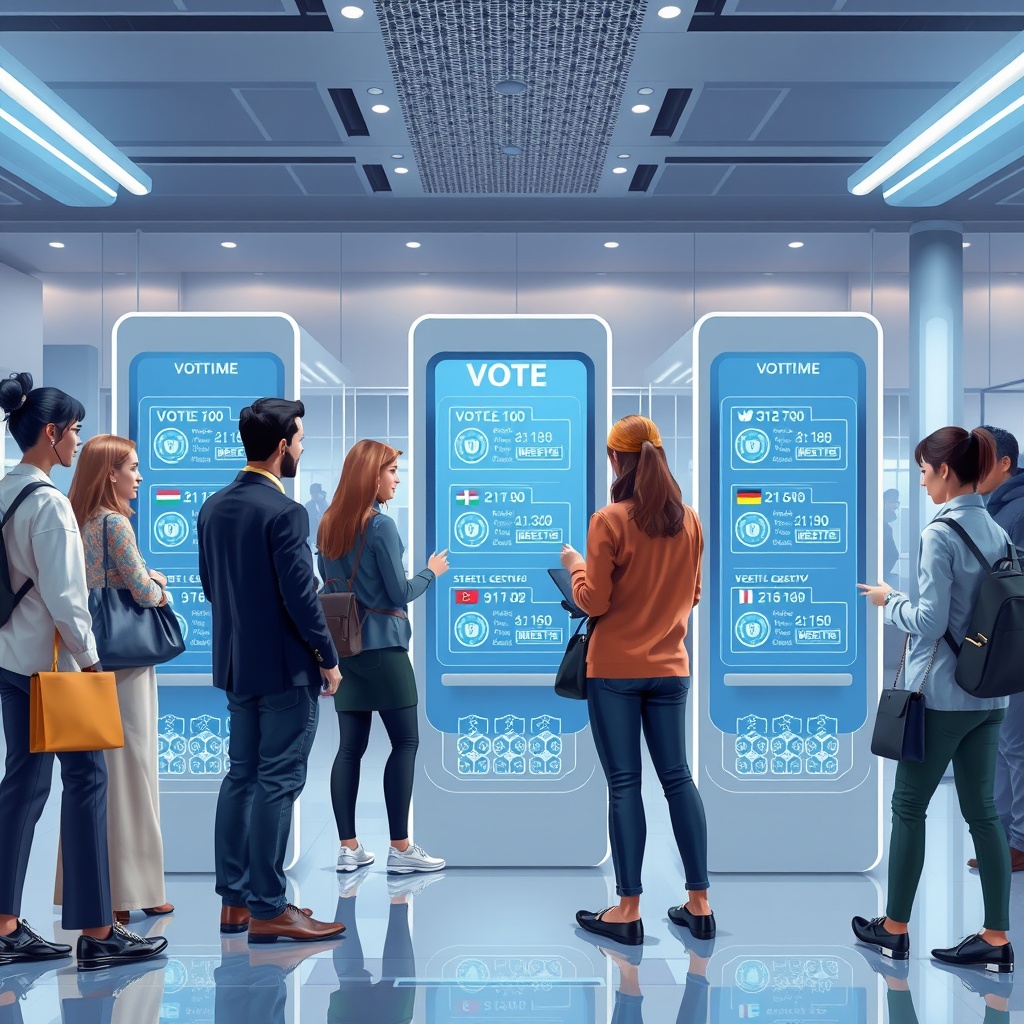The Challenge of Traditional Voting Systems
In today’s digital age, the integrity and transparency of electoral processes are under intense scrutiny. Traditional voting methods, while time-tested, are often plagued by issues such as human error, fraud, and lack of transparency. These challenges can undermine public trust and lead to contested results. Enter smart contracts—self-executing contracts with the terms of the agreement directly written into code—offering a revolutionary solution to the problems faced by conventional voting systems.
How Smart Contracts Transform Vote Counting
Smart contracts leverage blockchain technology to automate vote counting and verification, ensuring that every vote is counted accurately and transparently. By storing votes in an immutable ledger, these contracts eliminate the risk of tampering and unauthorized access. Voters can verify their votes independently, fostering trust in the electoral process. The automation aspect further reduces the time and labor involved in counting votes, allowing for quicker results without sacrificing accuracy.
Here are some key advantages of using smart contracts for vote counting:
- Transparency: Each vote is recorded on a public ledger, making it accessible for verification by all stakeholders.
- Immutability: Votes cannot be altered or deleted once recorded, ensuring the integrity of the election.
- Efficiency: Automated counting processes significantly reduce the time required to tally results.
- Cost-effectiveness: Reducing manual labor and potential errors leads to lower operational costs over time.
- Decentralization: Eliminating a central authority reduces the risk of corruption and manipulation.
Ensuring Voter Privacy and Security
While the benefits of smart contracts in vote counting are clear, concerns about voter privacy and security remain paramount. Smart contracts can be designed to ensure that while votes are transparent and verifiable, the identity of the voter remains confidential. Techniques such as zero-knowledge proofs allow for the verification of votes without revealing who cast them. This ensures that voters can participate in elections without fear of retribution or exposure.
The future of elections could very well depend on the adoption of smart contracts, creating a more reliable, transparent, and secure voting process that restores faith in democratic institutions.





